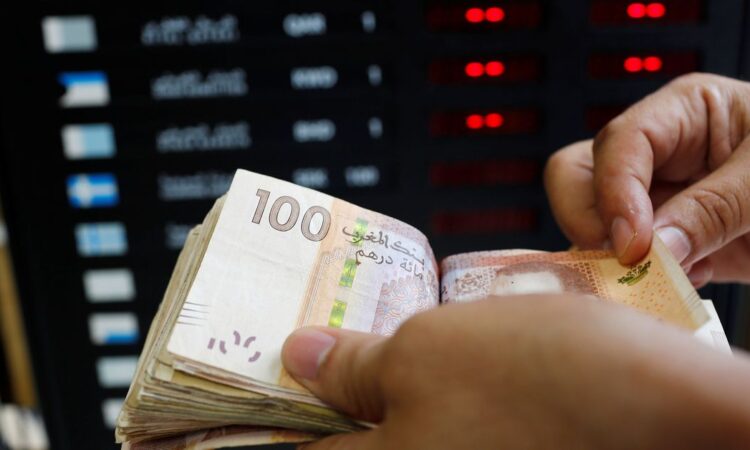
LONDON, April 24 (Reuters) – Morocco is not planning any changes for now to its currency trading band, Finance Minister Nadia Fettah Alaoui said on Monday.
Morocco began gradual currency market reforms in 2018 but has not made any significant changes since 2020 when it increased how much the dirham was allowed to fluctuate from a centrally set reference level to 5% from 2.5%.
The last 14-months though has seen swathes of frontier market currencies come under widespread pressure, including two of Morocco’s North African counterparts, Tunisia and Egypt, the latter of which has undertaken a trio of sizable devaluations.
“Despite all the volatility (in markets) we had in 2022, the currency remained in this 5% range, so I think we are not changing the pace of this,” Alaoui told Reuters on the sidelines of the annual City Week finance conference in London.
“There is some trouble all over the world and so far I think this 5% is largely enough to move smoothly towards a more flexible regime” when conditions allow, she said.
She said the subsidies the Moroccan government had put in place had helped limit inflationary pressures.
Data this month showed consumer price index in the country rose in March by 8.2% from a year earlier, on a surge in food prices which surged 16.1% year on year.
Higher food prices have seen authorities restrict the export of some vegetables to European and other African markets to try to reduce prices at home, while last week, the government scrapped value-added tax on agricultural “inputs”.
“We have chosen really targeted measures,” Alaoui said. “I would say it has avoided 3 additional points of inflation that could have impacted the population.”
Reporting by Marc Jones;
Editing by Alison Williams
Our Standards: The Thomson Reuters Trust Principles.






